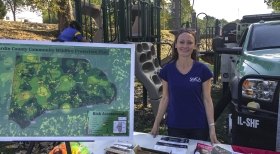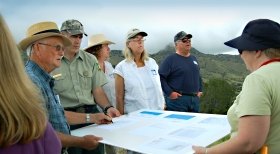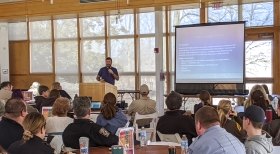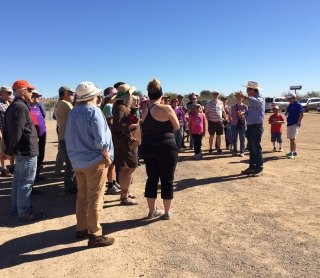
Strengthening communication and stakeholder relationships to meet strategic objectives and regulatory requirements
Engaging and communicating with stakeholders proactively is more critical than ever before. Agencies and project proponents must navigate shifting regulatory requirements and public expectations for stakeholder involvement in their projects. Identifying and addressing risks before they arise is increasingly important.
SWCA has helped clients develop, manage, and implement stakeholder engagement and strategic communications strategies for decades. We provide a full-service offering for all types of clients and every stage of the project lifecycle. Our approach centers on building trust, credibility, and respect between stakeholders and our clients through meaningful engagement and clear communication. We help clients understand stakeholder expectations, engage with them in productive ways, and address stakeholder concerns during project design, planning, and decision making.
Our clients benefit from a team of experienced professional communicators and facilitators with the following skills and capabilities:
- Managing challenging stakeholder relationships and engaging vulnerable communities
- Science communication knowledge and training
- Deep understanding of federal and state regulatory processes (NEPA, CEQA, ESA, NHPA, etc.)
- Custom technology solutions including collaborative mapping, interactive web meetings, virtual open house platform, and 360 visualizations
- Seamless integration with experts and teams across SWCA’s other services
20+ Experience in 20+ States
50+ Virtual Public Meetings Since 2020
65 Local specialists in 21 offices
Project Spotlights
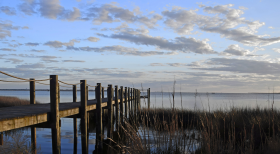
Stakeholder Engagement
WHERE THE WATER GOES: PLANNING RESILIENT COASTAL COMMUNITIES IN NORTH CAROLINA
The coastal regions of North Carolina offer thousands of miles of scenic waterfront. Yet, due to the increasing impacts of climate change, these very waterways threaten the livelihood of a coastline dotted with historic towns and millions of residents. Coastal communities are facing intensifying storms, rising sea levels, and high flood risk.

Stakeholder Engagement
City of Corona Community Wildfire Protection Plan
In July 2021, SWCA released a story map to engage the public in the ongoing Community Wildfire Protection Plan (CWPP) process for the City of Corona. The CWPP identifies priority areas where mitigation measures are needed to protect the city from irreplaceable life, property, and critical infrastructure losses because of wildfire.

Strategic Communications
I THINK WE ALL CAN AGREE: USING ENVIRONMENTAL CONFLICT RESOLUTION TECHNIQUES AT FORT DOUGLAS, UTAH
Environmental conflicts are among the most challenging of public policy disputes. A complex set of differing interests and many stakeholders complicate decision-making and project implementation. Such disputes may arise in regional or national policy debates, during planning and permitting of specific projects, or when facing site specific compliance and enforcement issues.
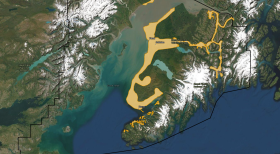
Stakeholder Engagement
Kenai Peninsula Borough Community Wildfire Protection Plan
The 2022 Kenai Peninsula Borough (KPB) Community Wildfire Protection Plan (CWPP) update provides a peninsula-wide scale of wildfire risk and protection needs, brings together all responsible wildfire management and suppression entities in the planning area to address identified needs, and provides a framework for future planning and implementation of necessary mitigation measures. This CWPP aims to assist in protecting human life and reducing property loss due to wildfire throughout the KPB. This 2022 updated plan was compiled from reports, documents, data, and the original 17 community-level CWPPs produced between 2006 and 2009, as KPB’s first peninsula-wide CWPP.
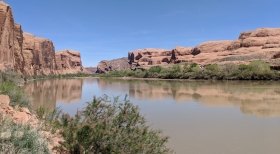
Stakeholder Engagement
A TALE OF TWO RIVERS
Rivers are the arteries of our earth’s landscape. Nothing matches a river’s abilities to connect our places and spaces and sustain life in, alongside, and even miles away from its course. How do we manage rivers as functioning, sustainable ecosystems while still supporting human needs? It’s a complicated question without easy answers. One approach is to develop comprehensive management plans (CMPs) that guide land managers and the public. SWCA recently had the opportunity to develop CMPs for segments of two of the West’s most important rivers—the Green and the Colorado.
